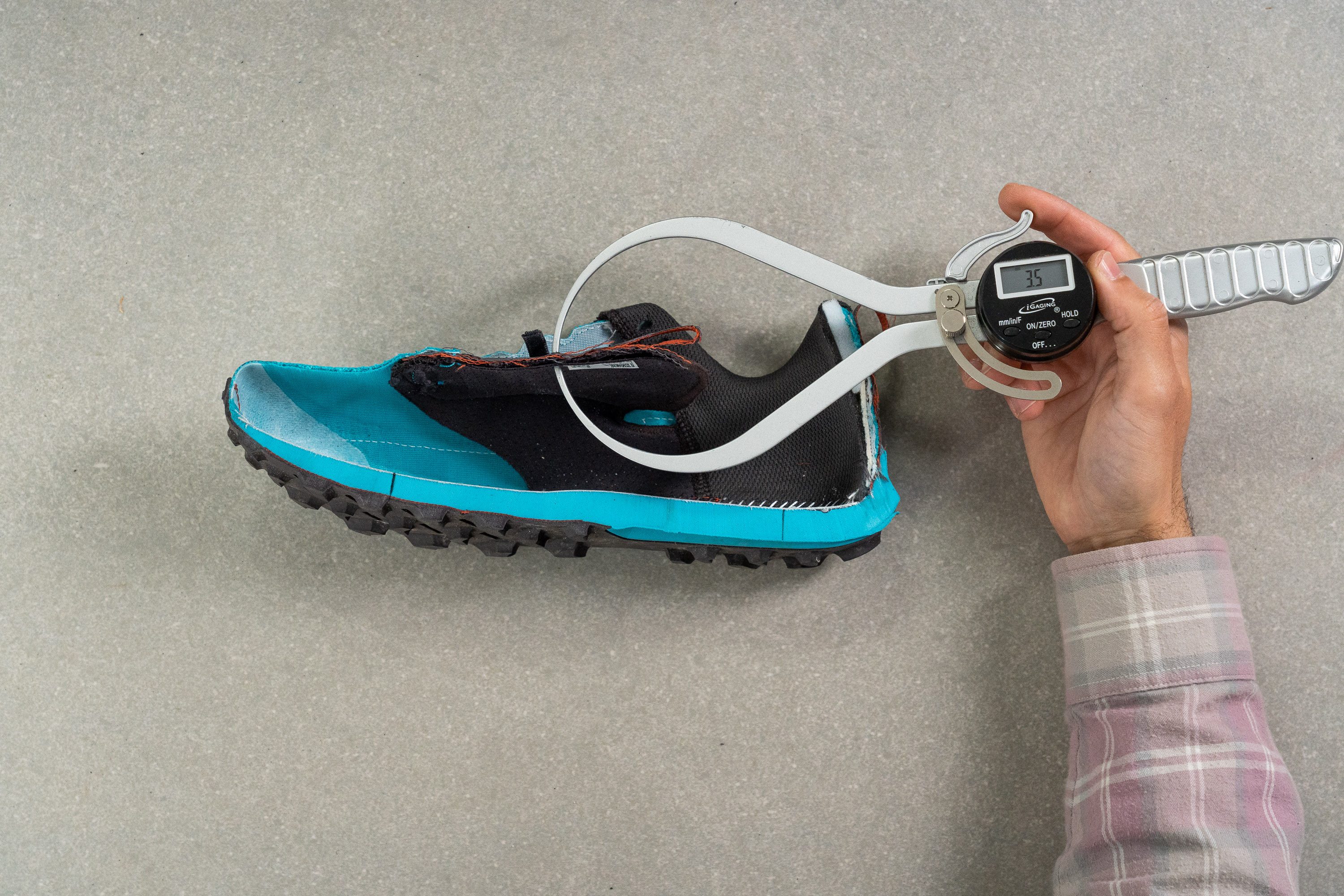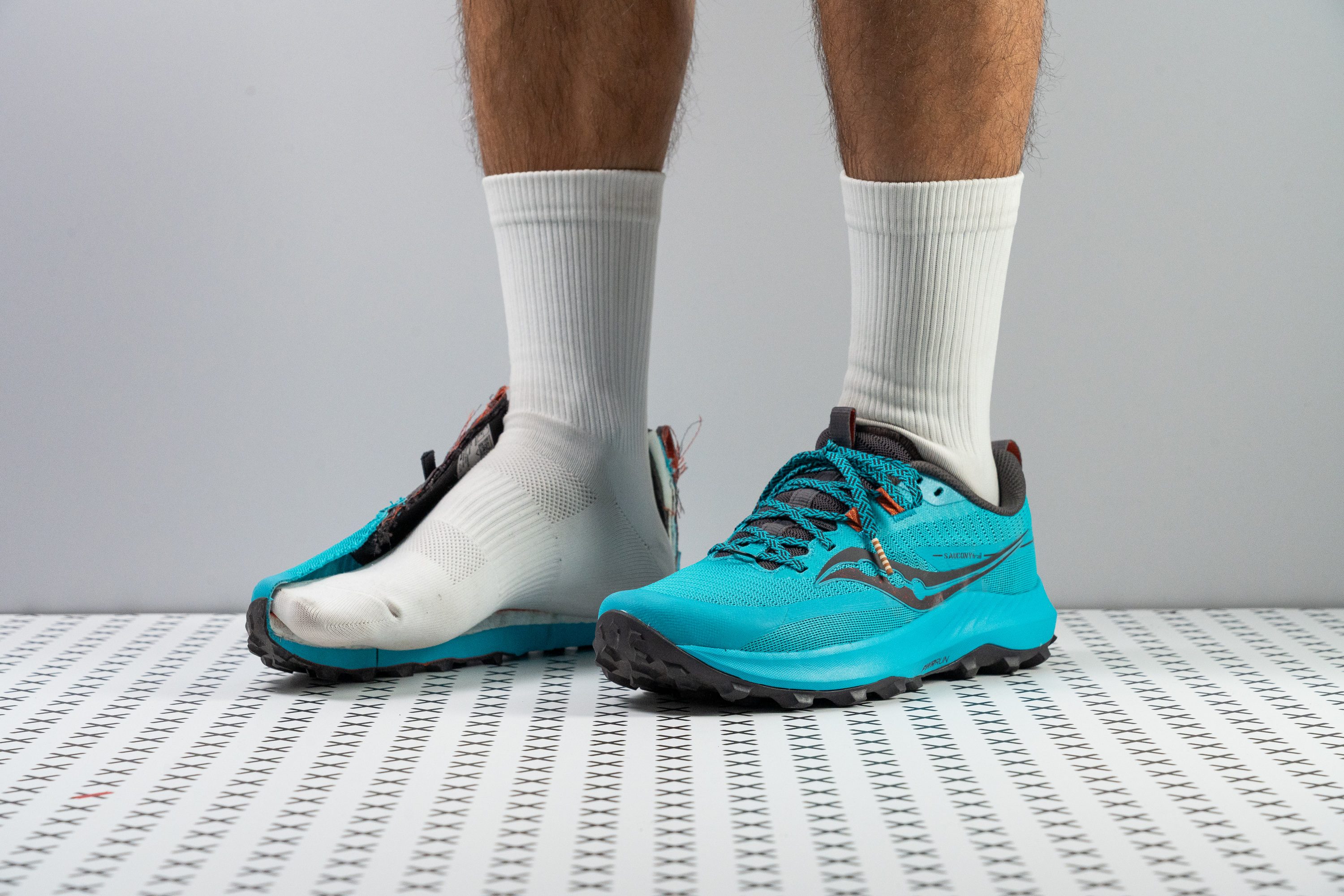Our verdict
- Top pick in best trail running shoes (2023)
- Top pick in best Saucony walking shoes (2023)
Pros
- Cushioned midsole
- Protective rock plate
- Better for longer efforts than the v12
- A good trail racing option
- Great traction whether on ice, snow, gravel, and dirt
- Mud just falls off the outsole
- Comfy and airy upper
- Performance-oriented fit
- No heel slippage
- Smooth and natural-feeling ride
Cons
- Debris tends to get in
- Not as fast as other speedwork trail shoes
- Too-firm midsole
Audience verdict
- Top 23% in trail running shoes
- Top 30% in neutral running shoes
Comparison
The most similar running shoes compared
+ + Add a shoe | |||||
|---|---|---|---|---|---|
| Audience score | 89 Great! | 88 Great! | 77 Decent! | 90 Superb! | |
| Price | $140 | $150 | $140 | $150 | |
| Trail terrain | Technical | LightModerate | LightModerate | ModerateTechnical | |
| Shock absorption | - | - | Moderate | - | |
| Energy return | - | - | Moderate | - | |
| Arch support | Neutral | Neutral | Neutral | Neutral | |
| Weight lab Weight brand | 9.6 oz / 271g 9.6 oz / 271g | 9.9 oz / 282g 9.9 oz / 280g | 9.4 oz / 266g 9.7 oz / 275g | 10.2 oz / 288g 10.1 oz / 286g | |
| Drop lab Drop brand | 3.9 mm 4.0 mm | 6.0 mm 6.0 mm | 3.7 mm 4.0 mm | 4.4 mm 3.0 mm | |
| Strike pattern | Mid/forefoot | Mid/forefoot | Mid/forefoot | Mid/forefoot | |
| Size | Slightly small | Slightly small | True to size | True to size | |
| Midsole softness | Balanced | Soft | Soft | Soft | |
| Difference in midsole softness in cold | Small | Small | Small | Normal | |
| Plate | Rock plate | Rock plate | Rock plate | ✗ | |
| Toebox durability | - | Decent | Good | Very good | |
| Heel padding durability | - | Good | Decent | Decent | |
| Outsole durability | - | Good | Good | - | |
| Breathability | Moderate | Moderate | Moderate | Moderate | |
| Width / fit | Medium | Medium | Medium | Medium | |
| Toebox width | Narrow | Wide | Narrow | Medium | |
| Stiffness | Stiff | Stiff | Moderate | Stiff | |
| Torsional rigidity | Flexible | Flexible | Flexible | Moderate | |
| Heel counter stiffness | Moderate | Flexible | Moderate | Moderate | |
| Lug depth | 4.8 mm | 3.9 mm | 4.7 mm | 4.4 mm | |
| Heel stack lab Heel stack brand | 27.5 mm 28.0 mm | 30.1 mm 29.0 mm | 29.5 mm 28.0 mm | 30.1 mm 31.0 mm | |
| Forefoot lab Forefoot brand | 23.6 mm 24.0 mm | 24.1 mm 23.0 mm | 25.8 mm 24.0 mm | 25.7 mm 28.0 mm | |
| Widths available | Normal | NormalWide | NormalWide | Normal | |
| Season | All seasons | All seasons | All seasons | All seasons | |
| Removable insole | ✓ | ✓ | ✓ | ✓ | |
| Orthotic friendly | ✓ | ✓ | ✓ | ✓ | |
| Ranking | #189 Top 29% | #140 Top 38% | #330 Bottom 10% | #37 Top 10% | |
| Popularity | #447 Bottom 31% | #327 Bottom 11% | #139 Top 38% | #293 Bottom 20% |
Size and fit
Size
Saucony Peregrine 13 fits slightly small (44 votes).
Who should buy the Peregrine 13
Get a hold of this Saucony staple if you:
- Want a light and nimble pair for your everyday trail runs.
- Want a shoe that’s capable of racing through the most technical of trails.
- Are looking for a fast trail runner that’s also cushioned enough for long miles.
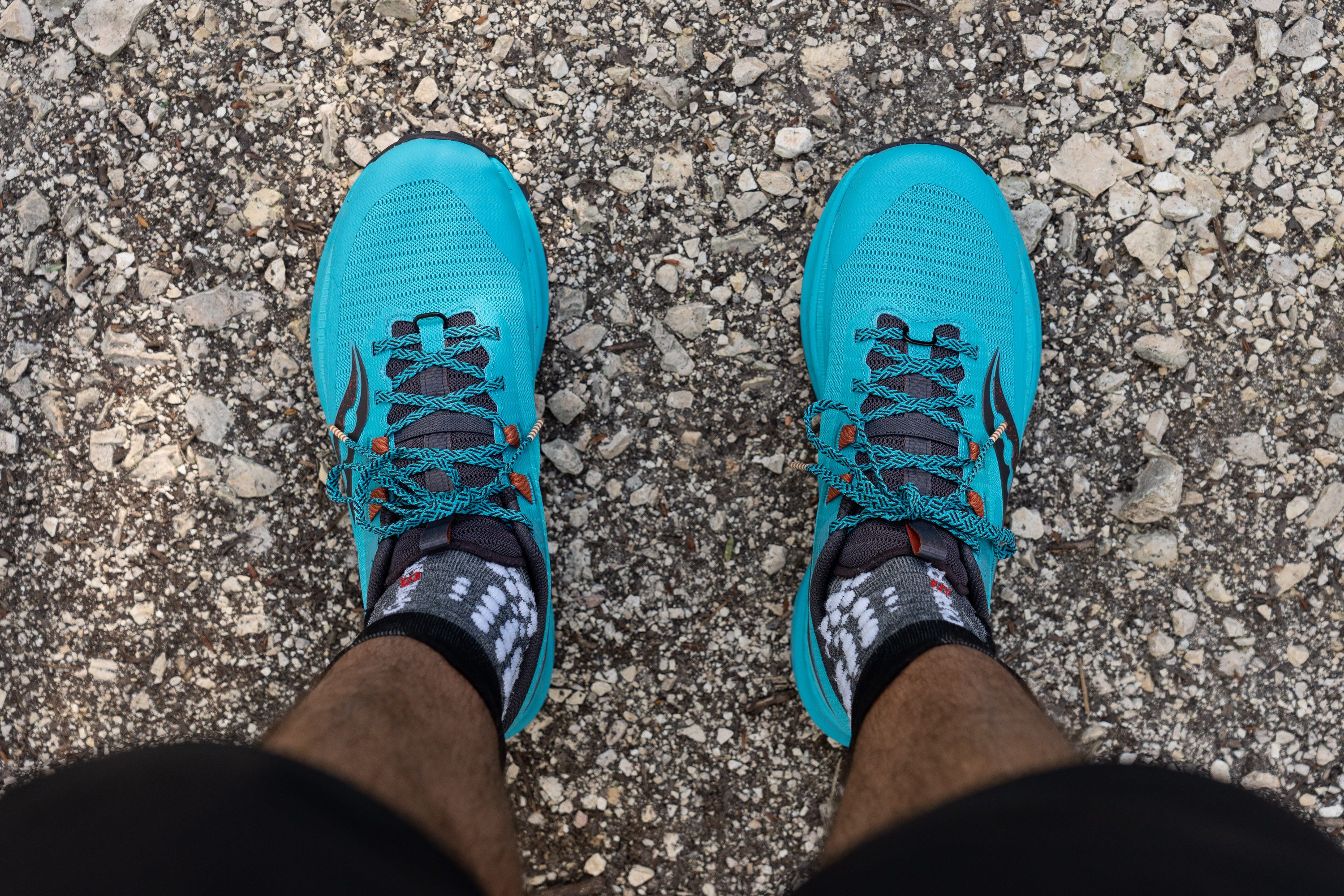
Who should not buy it
Those looking for a flat-out explosive trail running shoe should opt for the Hoka Torrent 3 or the Endorphin Edge. And if you’re after a tank-like shoe, we recommend checking out the Speedgoat 5. In our experience, these models excel in rugged terrains.
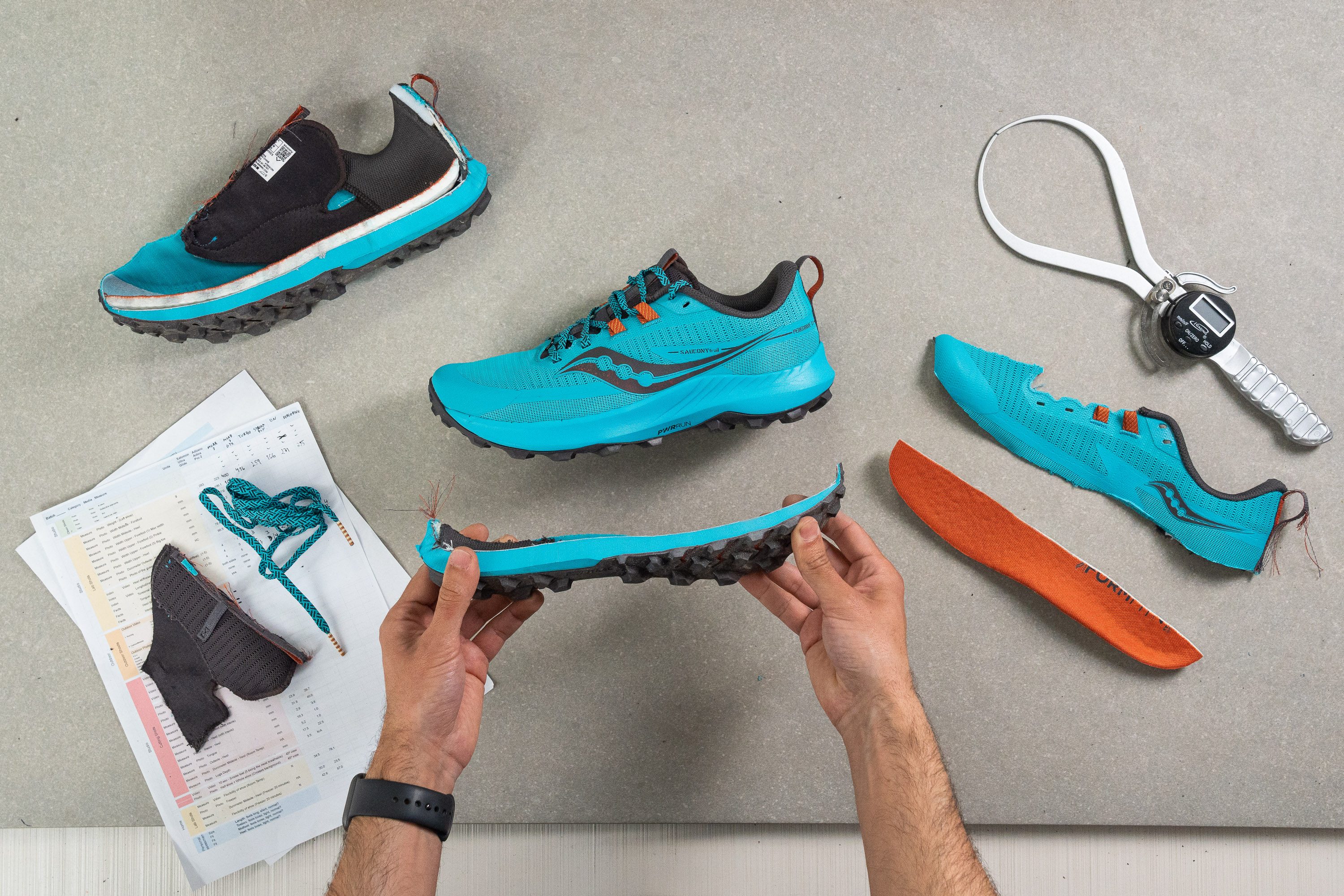
A breezy and wear-resistant upper
The Peregrine 13 gets a well-deserved breathability rating of 4 out of 5, making it more breathable than the average trail shoe. We are happy to report that it can handle warm weather, but not for extended periods of time.
In addition to being well-ventilated, the upper on this Saucony shoe is also super light and comfortable.
After examining the upper under our microscope, we can also claim that this Peregrine iteration carries over the durability and toughness we've come to anticipate from this trail shoe series..
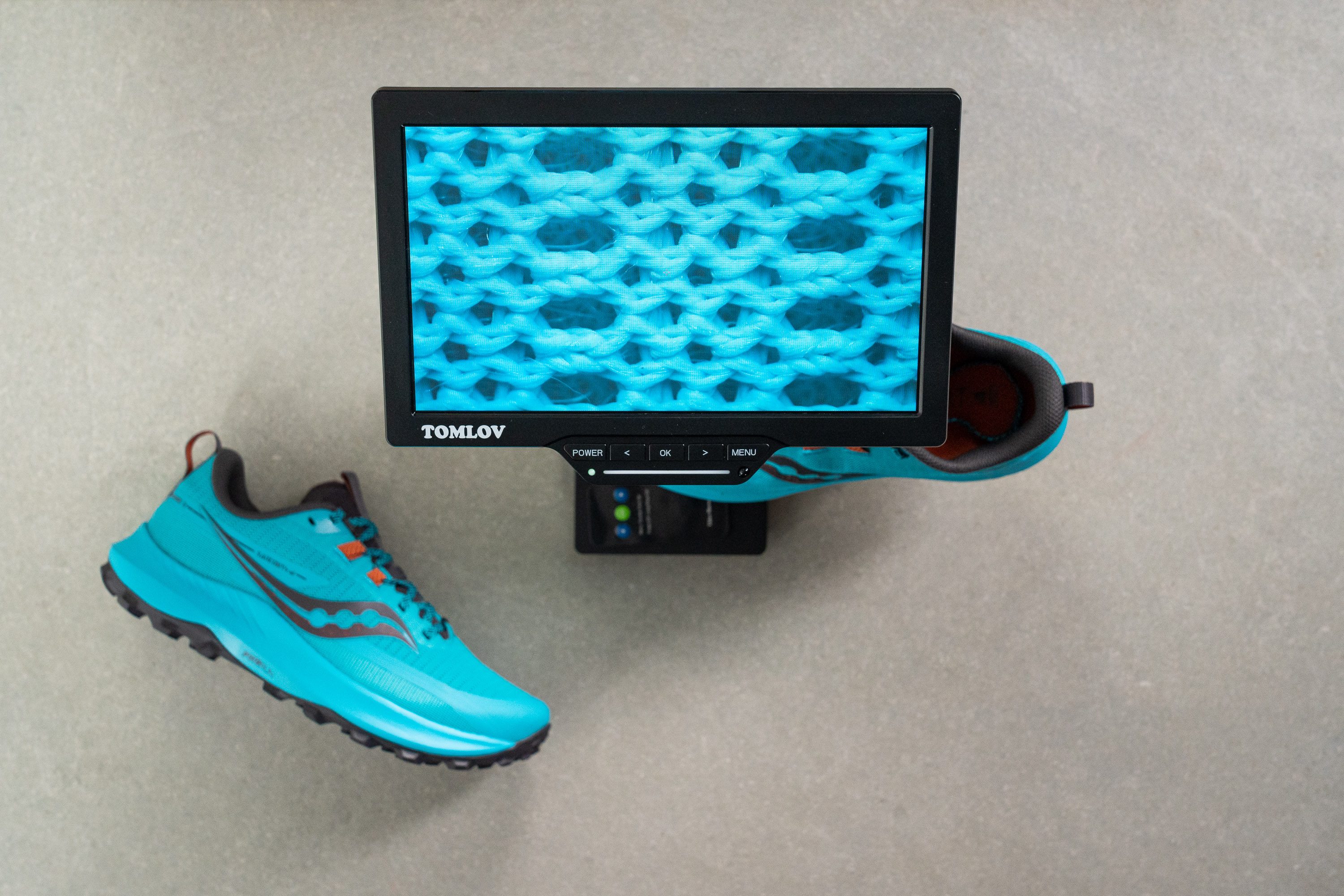
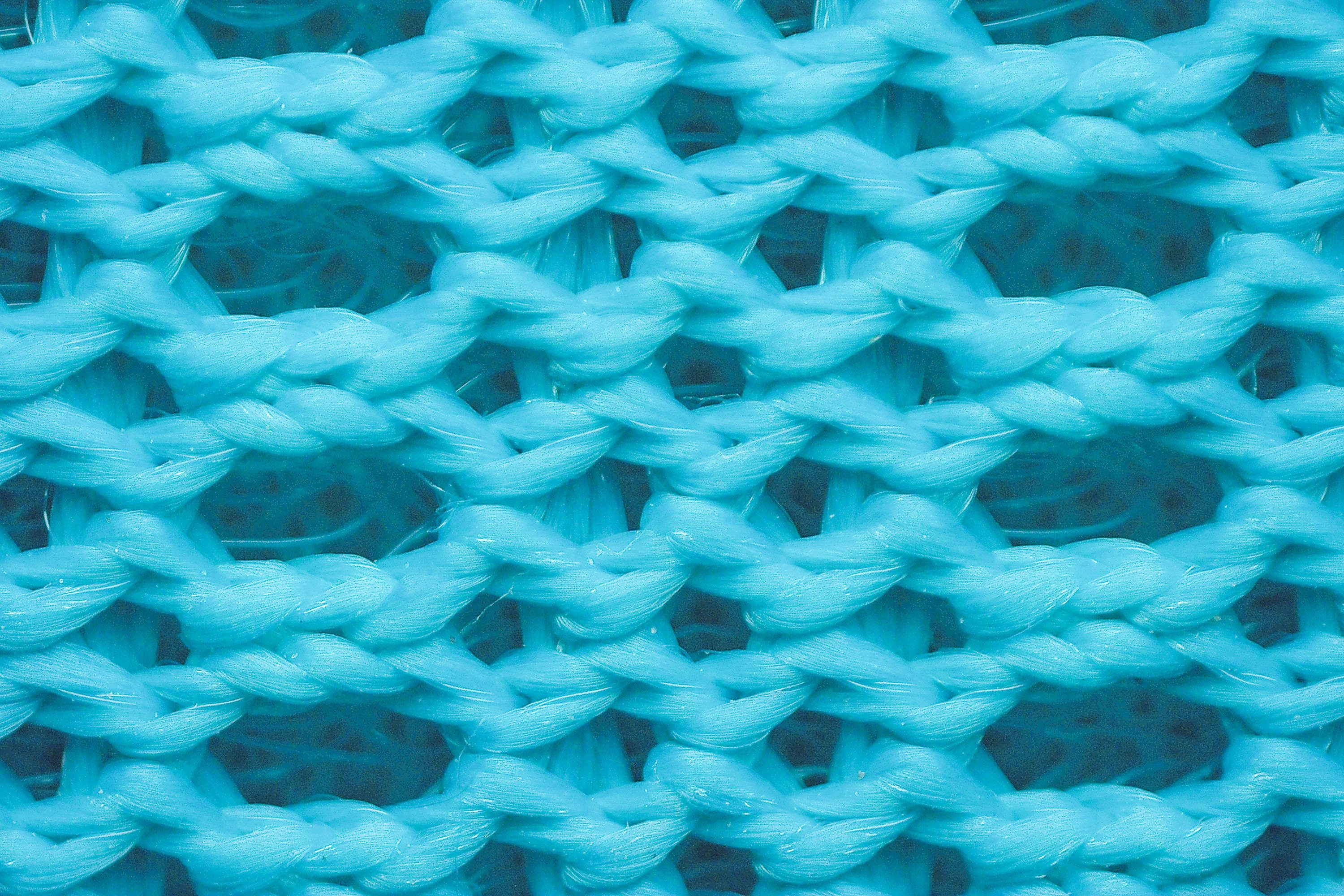
Now an even better daily trainer
The big story in the Peregrine 13 is the added 1.5 mm of PWRRUN midsole foam. While it’s still a firm experience overall, the shoe got noticeably cushier underfoot—with the harshness of the previous version now substantially diminished.
The extra 1.5 mm of foam helps the shoe drift away from the more technical-oriented Peregrine 12 and turns it into a more comfortable daily trainer. That's good news!
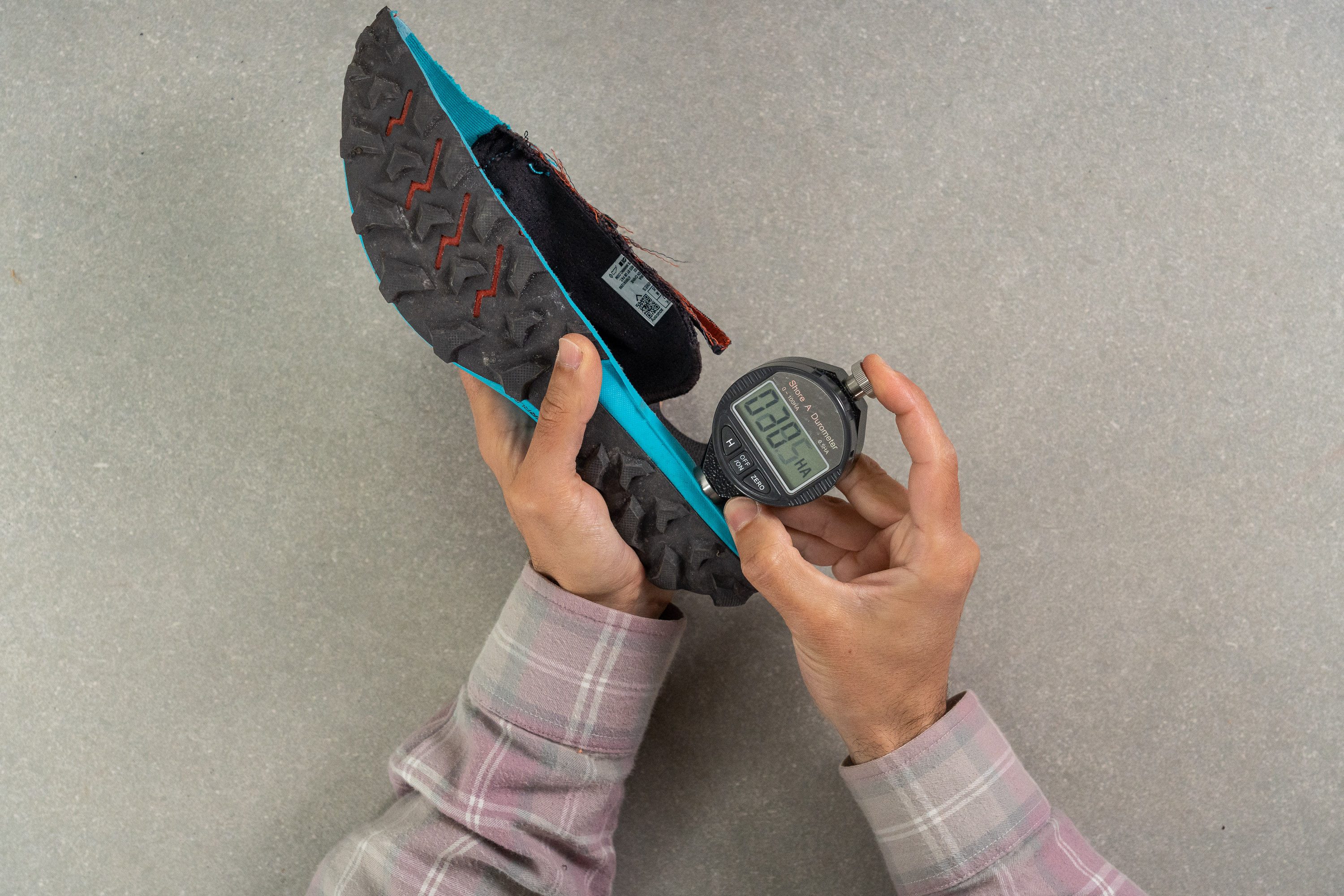
However, the Peregrine 13 is still pretty far from being a cushy goodness.
We measured the shoe's TPU-based midsole at 29.1 HA, which confirms our initial impressions. The shoe is 6% firmer than trail shoes on average. In comparison, its race-oriented sibling, the Saucony Endorphin Edge, is 47.3% softer. This difference is real!
Winter-proof
A common drawback of many trail running shoes is that they become quite firm in cold temperatures—please refer to our guide for more details. Thankfully, the TPU-based foam in the Saucony Peregrine 13 is one of those that performs admirably during winter conditions.
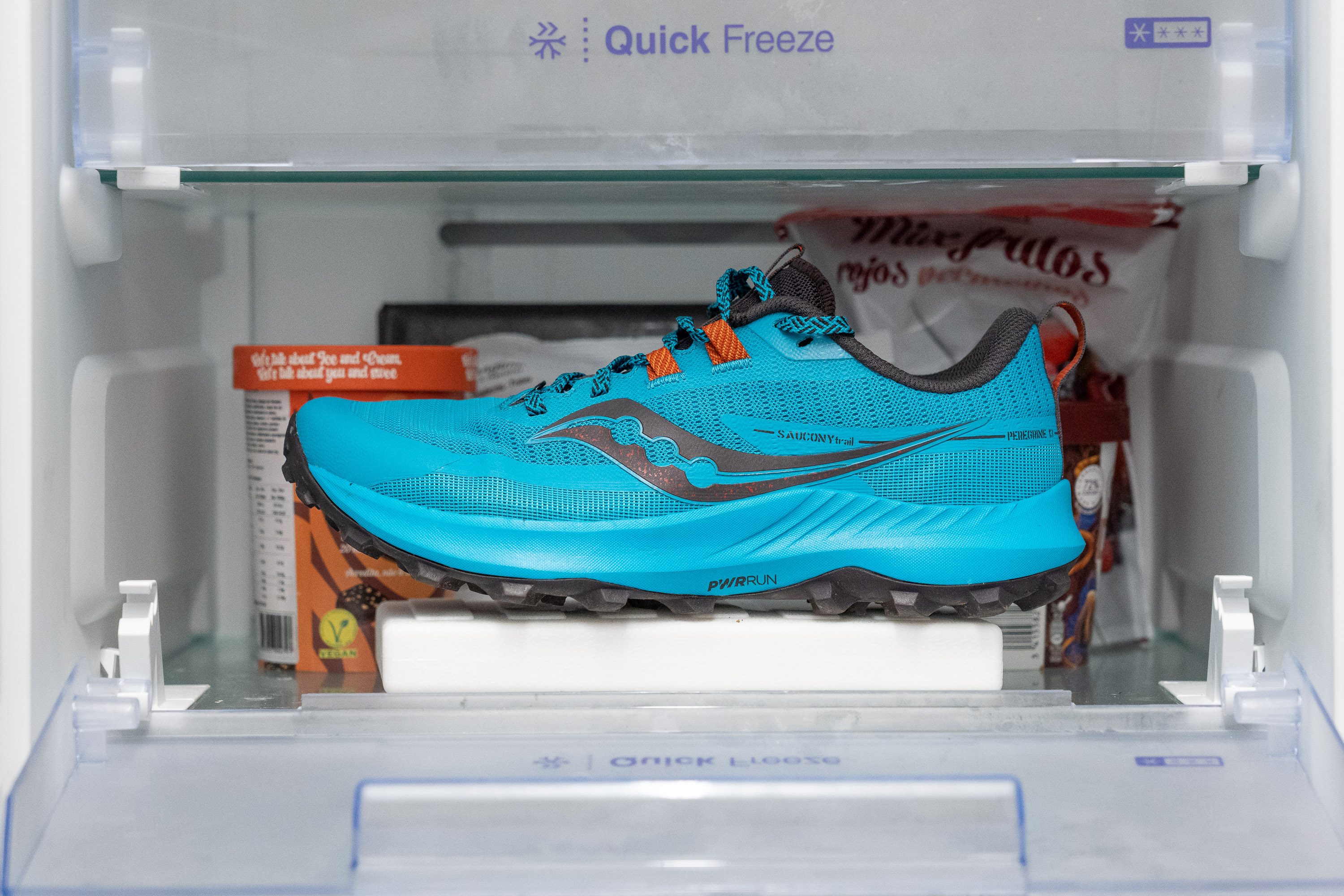
The PWRRUN foam in this shoe only hardens up by 16.3% after being in the freezer. For comparison, the EVA-based Salomon Ultra Glide 2 does it by 81.9% and becomes an absolute brick.
On the other hand, how does the Saucony fare in terms of flexibility? Once again, it surpasses the average shoe by becoming only 36.7% firmer, compared to the typical 43.5% increase in firmness that we measured.
The taller Peregrine 13 hasn’t lost its edge
What the v13’s taller stack lost in agility and ground feel, it made up for in underfoot comfort and responsiveness.
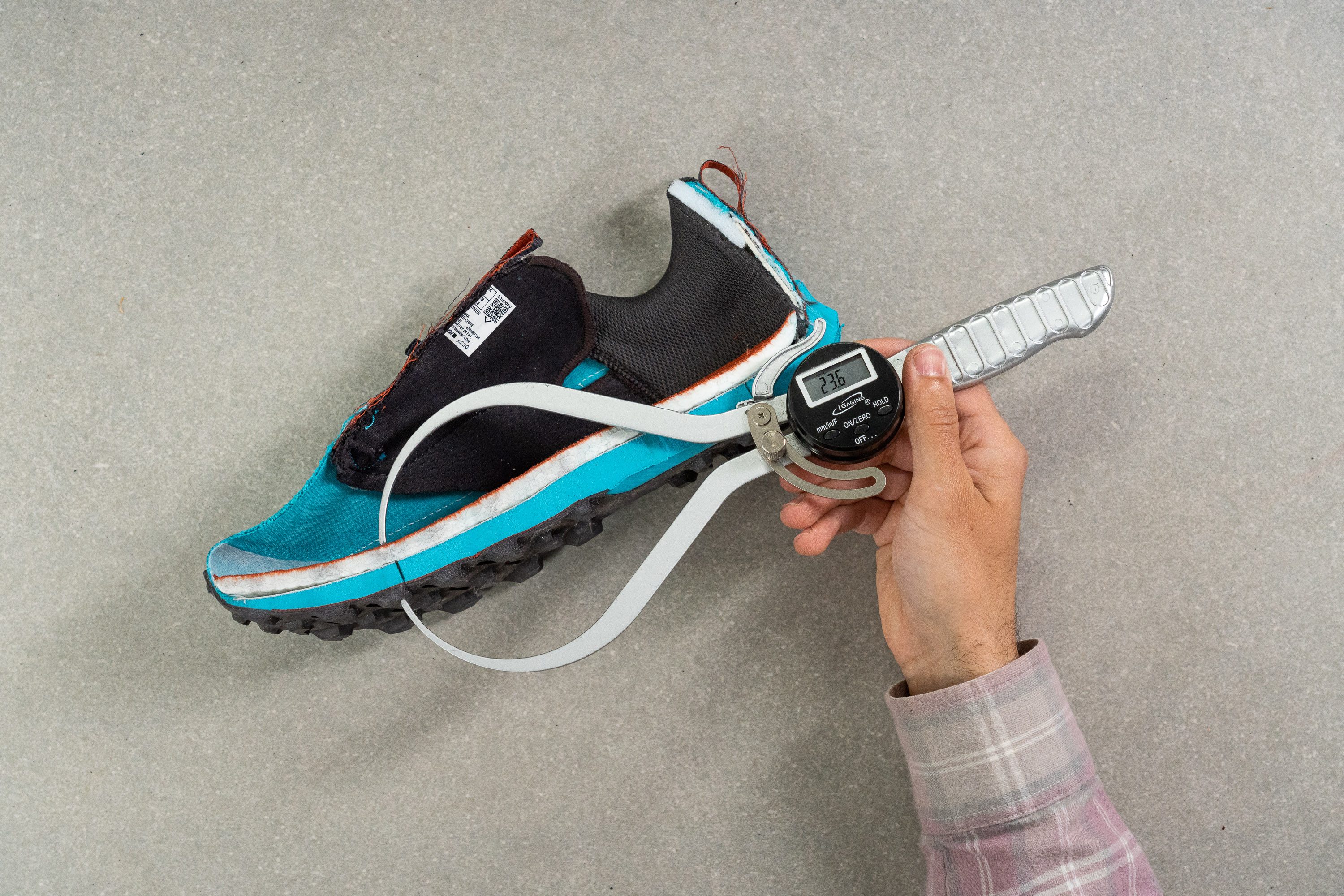
We meticulously measured the stack of the Peregrine 13 to confirm the brand's official claims of a 28/24 mm stack, resulting in a 4 mm drop. Hats off to Saucony, as our measurements came out to be 27.5/23.6 mm which implies an incredibly close heel-to-toe drop of 3.9 mm—only 0.1 mm away.
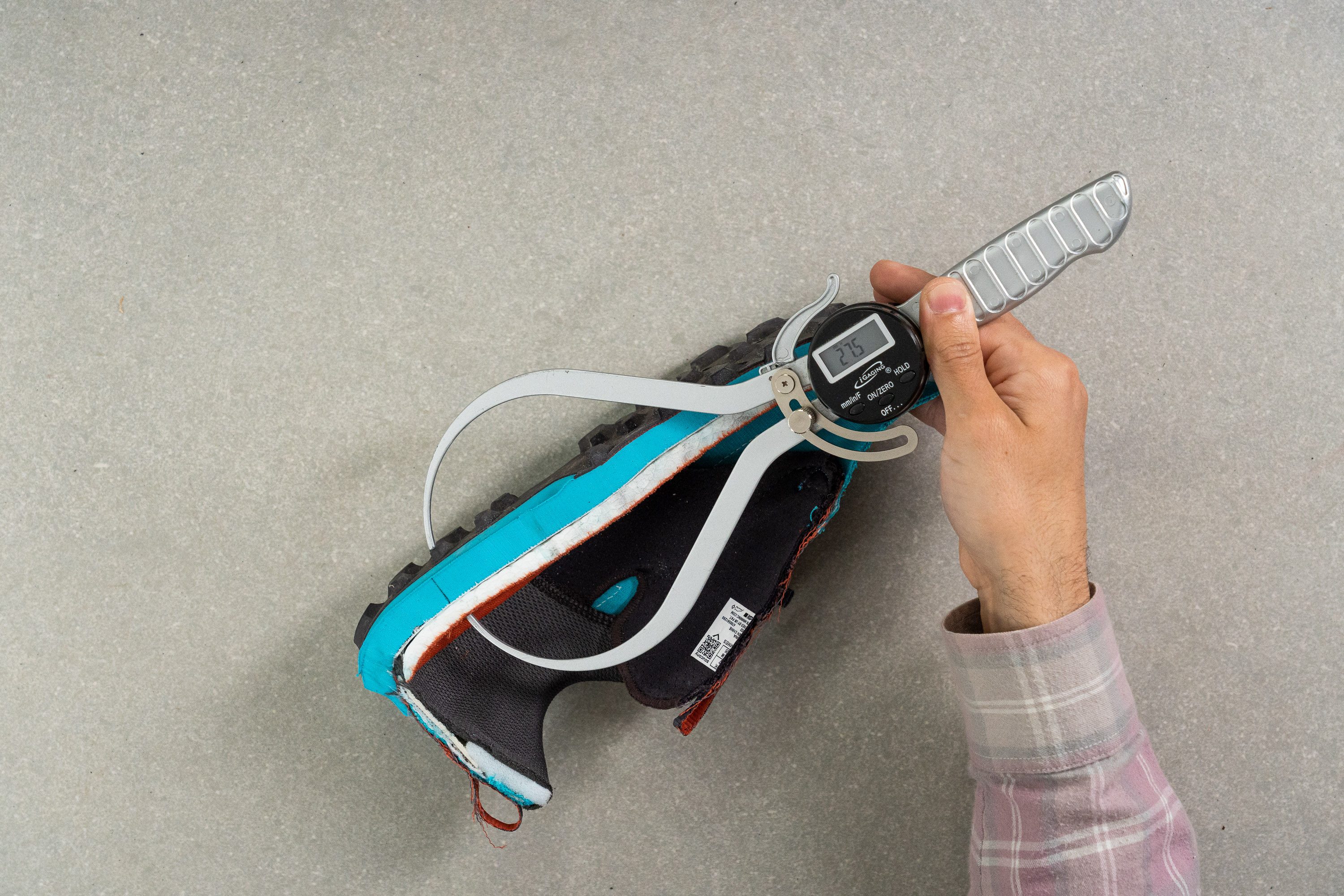
We also appreciated softer landings and smoother roll-throughs in the Peregrine 13. Both of these are beneficial for heel strikers.
It's also interesting to note that Saucony included an eye-popping 7.0 mm thick insole. That's 34% more than the average shoe and obviously contributes to the softer feeling compared to the previous Peregrine.
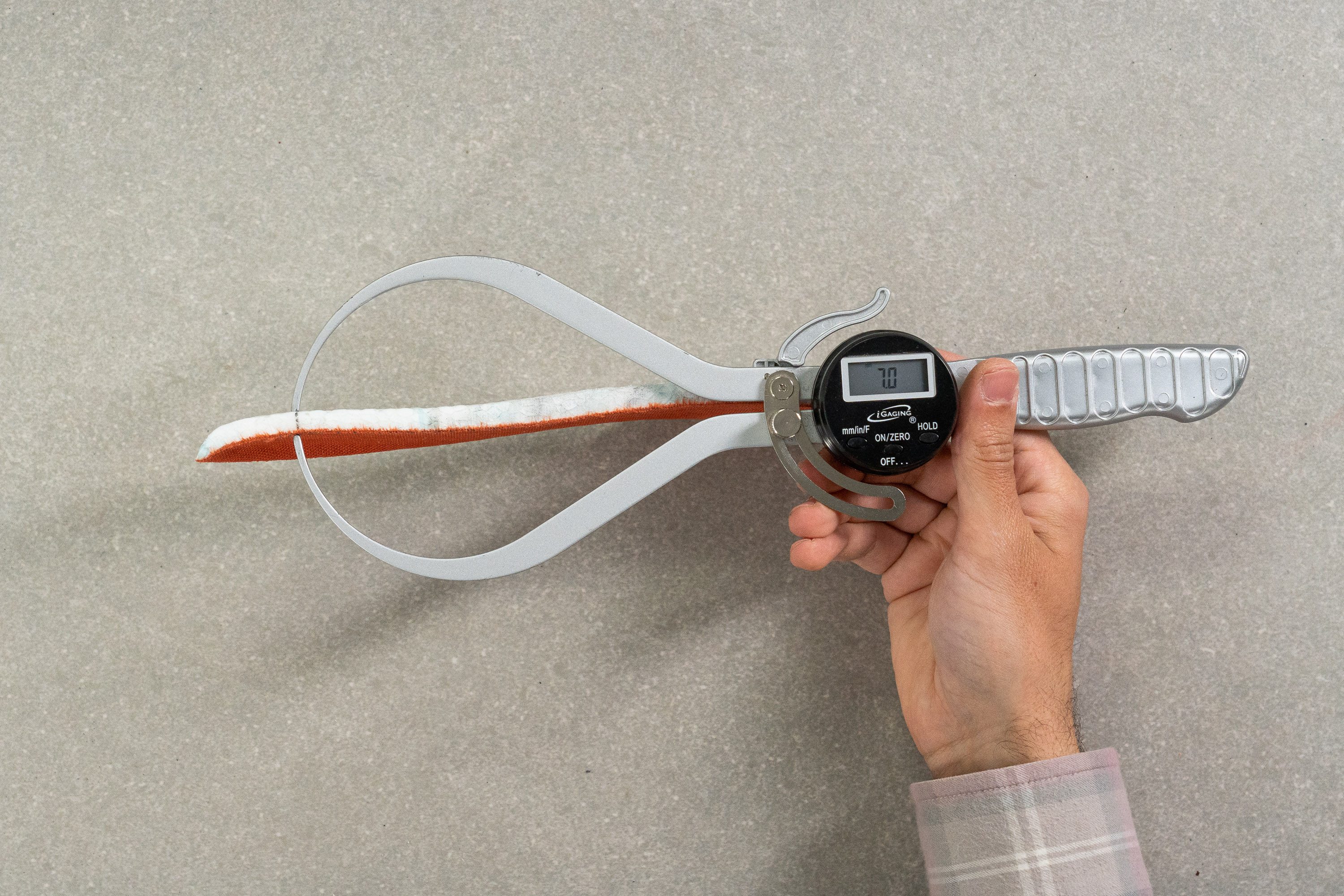
Pretty flexible!
Moreover, this shoe is really flexible. It only took 20.8N of force to bend it to 90º—which is a good 50% less than it takes on average.
In our manual assessment, the results were exactly the same as the ones obtained by the Peregrine 12. On a scale from 1 to 5 where 1 is the most flexible, the shoe scored 2 for longitudinal flexibility and 1 for torsional flexibility. That means A LOT of flex.
Technical trails are technically easy in the Peregrine 13
The Peregrine 13’s full-coverage outsole is complemented by 5-mm lugs providing excellent traction in almost every trail condition. We were able to run confidently on snow, ice, dirt, and gravel.
We also liked how the redesigned lug pattern smoothened out the ride and shed mud better.
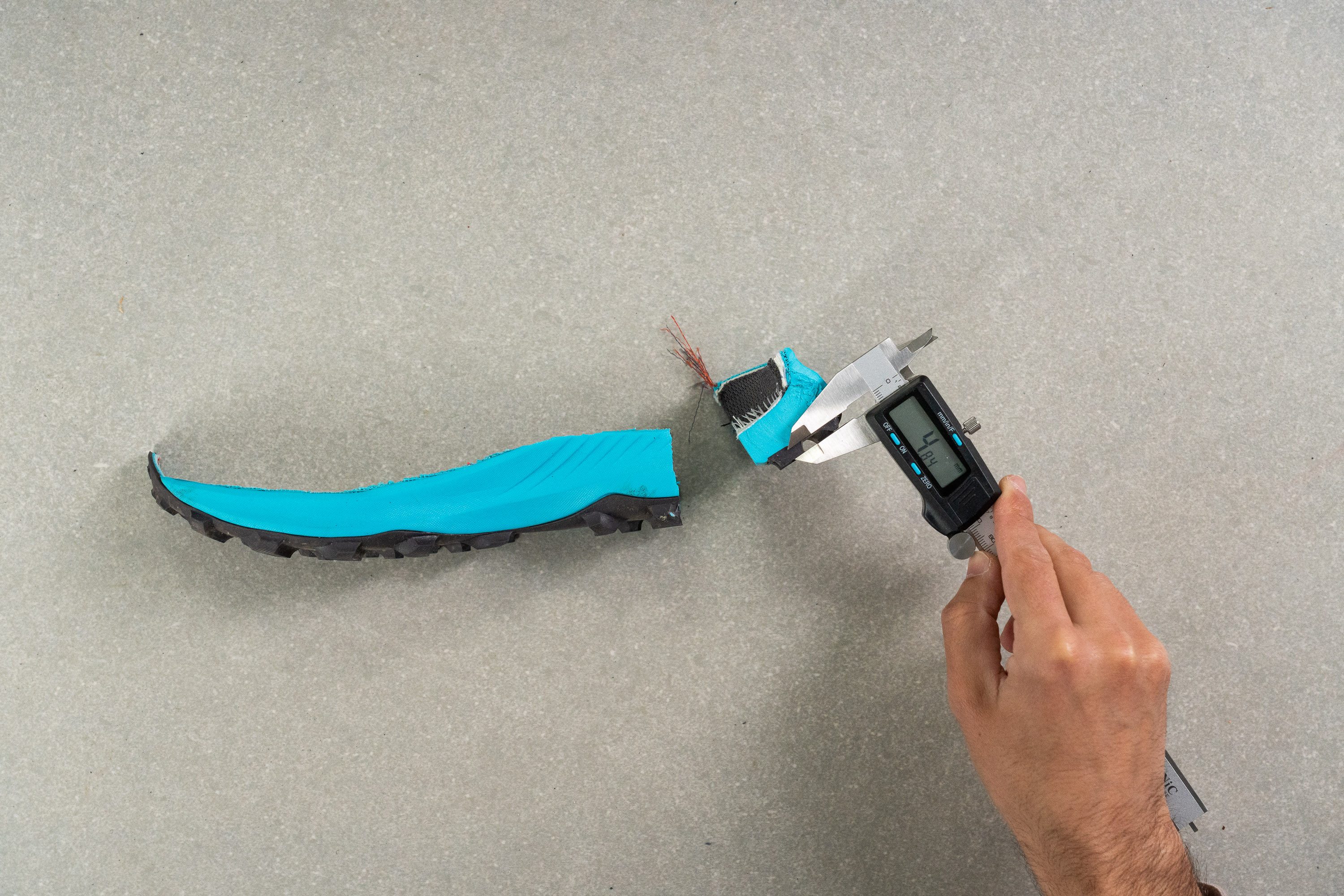
To be precise, our caliper shows that the lugs are 4.8 mm deep. That makes the Peregrine 13 much toothier than the average trail shoe.
No broken feet here
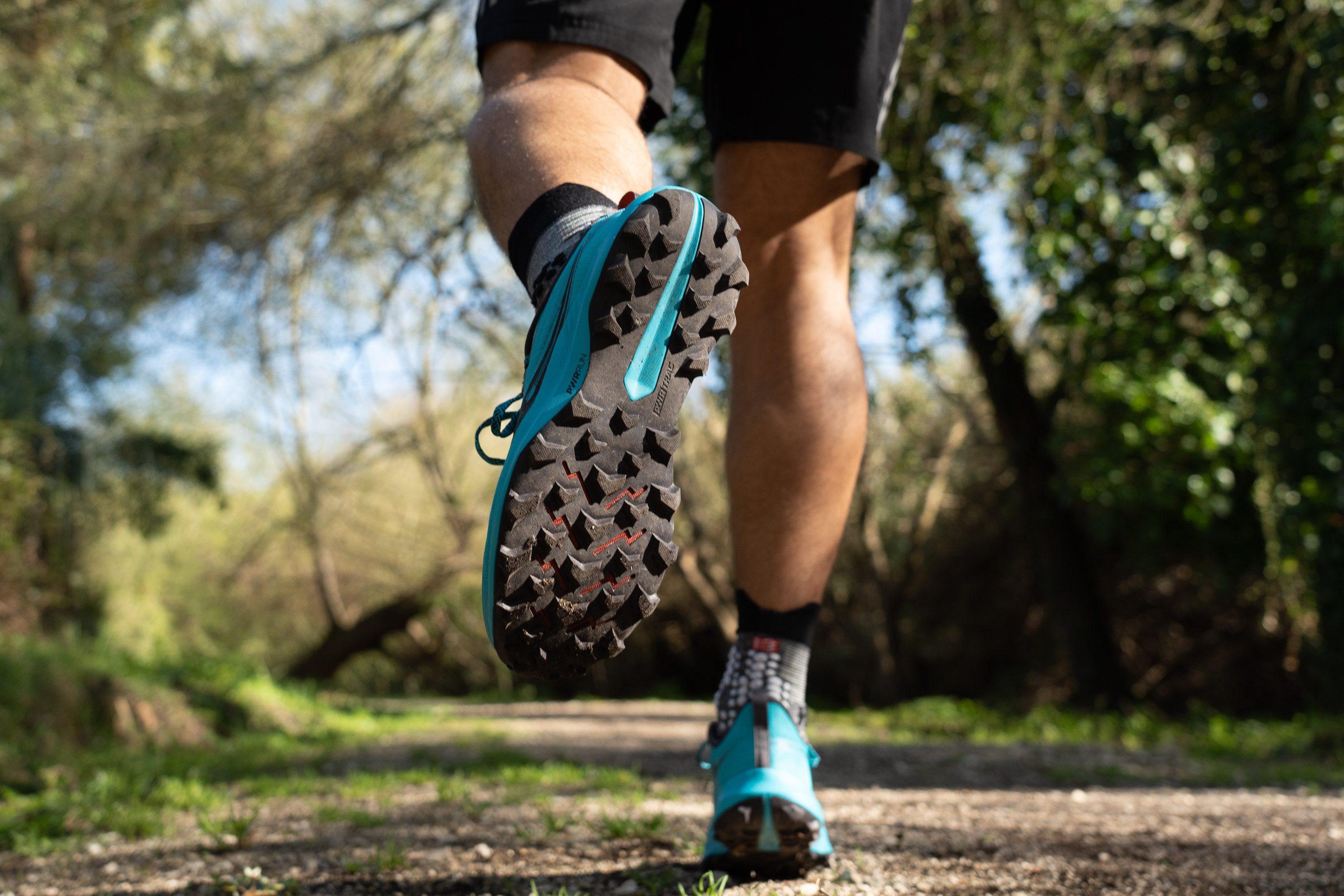
In addition to thicker cushioning, we also appreciated the shoe’s flexible rock plate for providing extra protection and stable landings on rugged, uneven terrain. This combination kept our feet safeguarded when running through rocky patches.
Pretty close-fitting
Examining the upper with a caliper, we observed that this shoe has a particularly narrow fit in the big toe area. It is only 72.9 mm wide around the big toe which is 4 mm narrower than average.
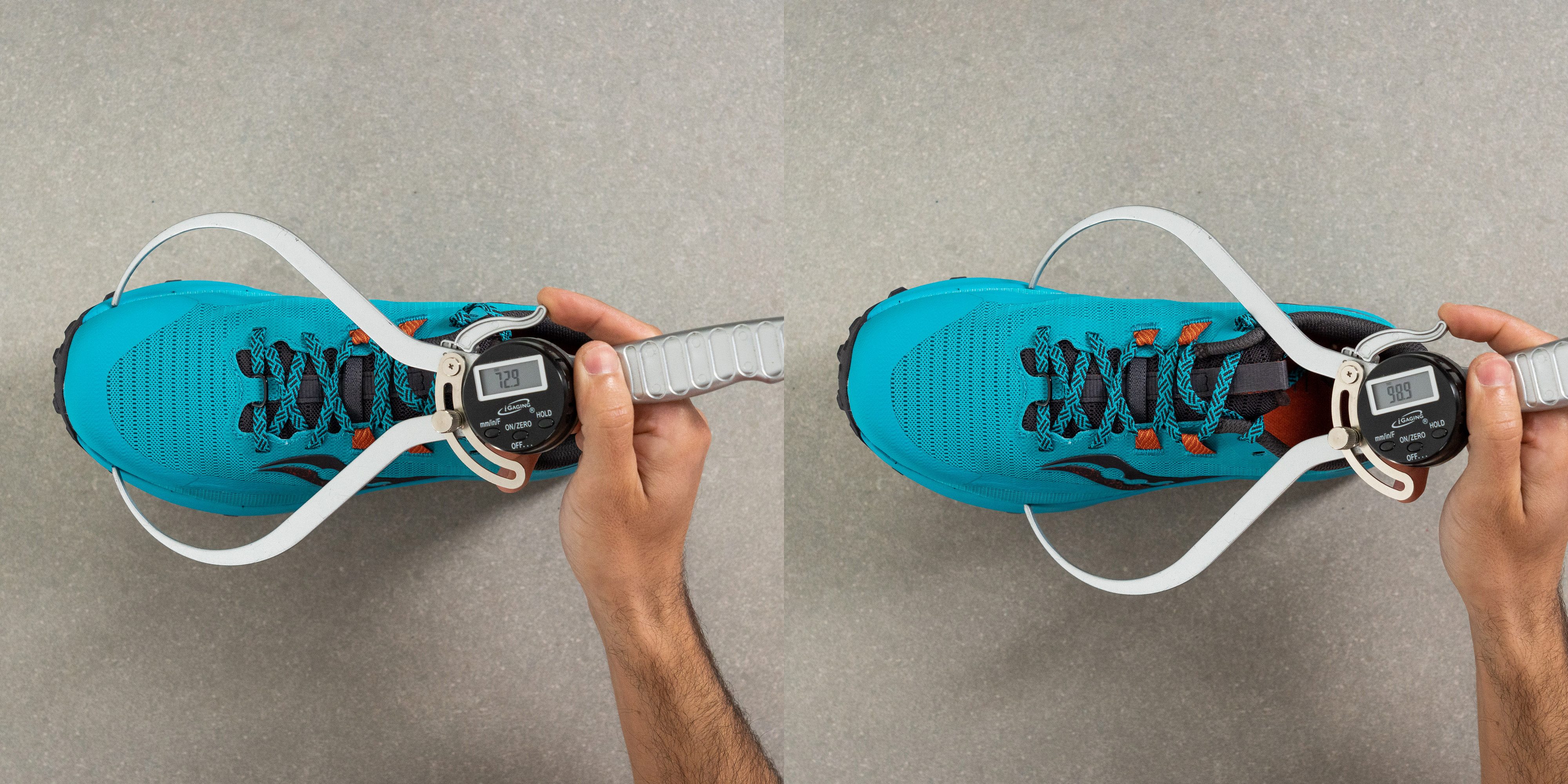
We didn't find it to be a problem for our medium feet but those with broader feet may want to opt for the wide version of the shoe.
Lacing is one-and-done
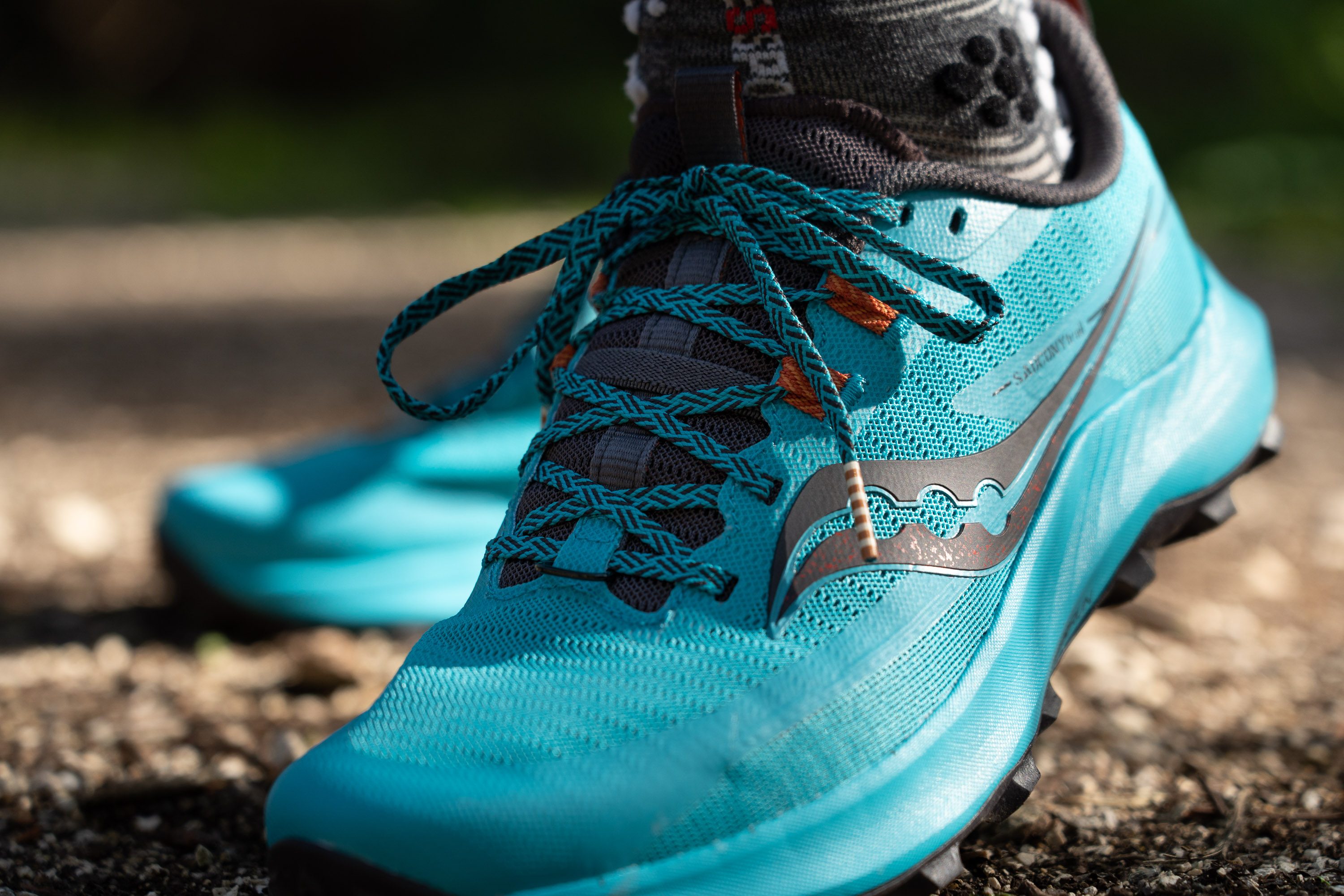
The Peregrine 13 comes with an amply padded and gusseted tongue. This, together with the laces, provides a solid, complete wrap around the foot without any pressure or lace bite.
We never found it necessary to stop and fine-tune the laces throughout the run. They stayed in place beautifully.
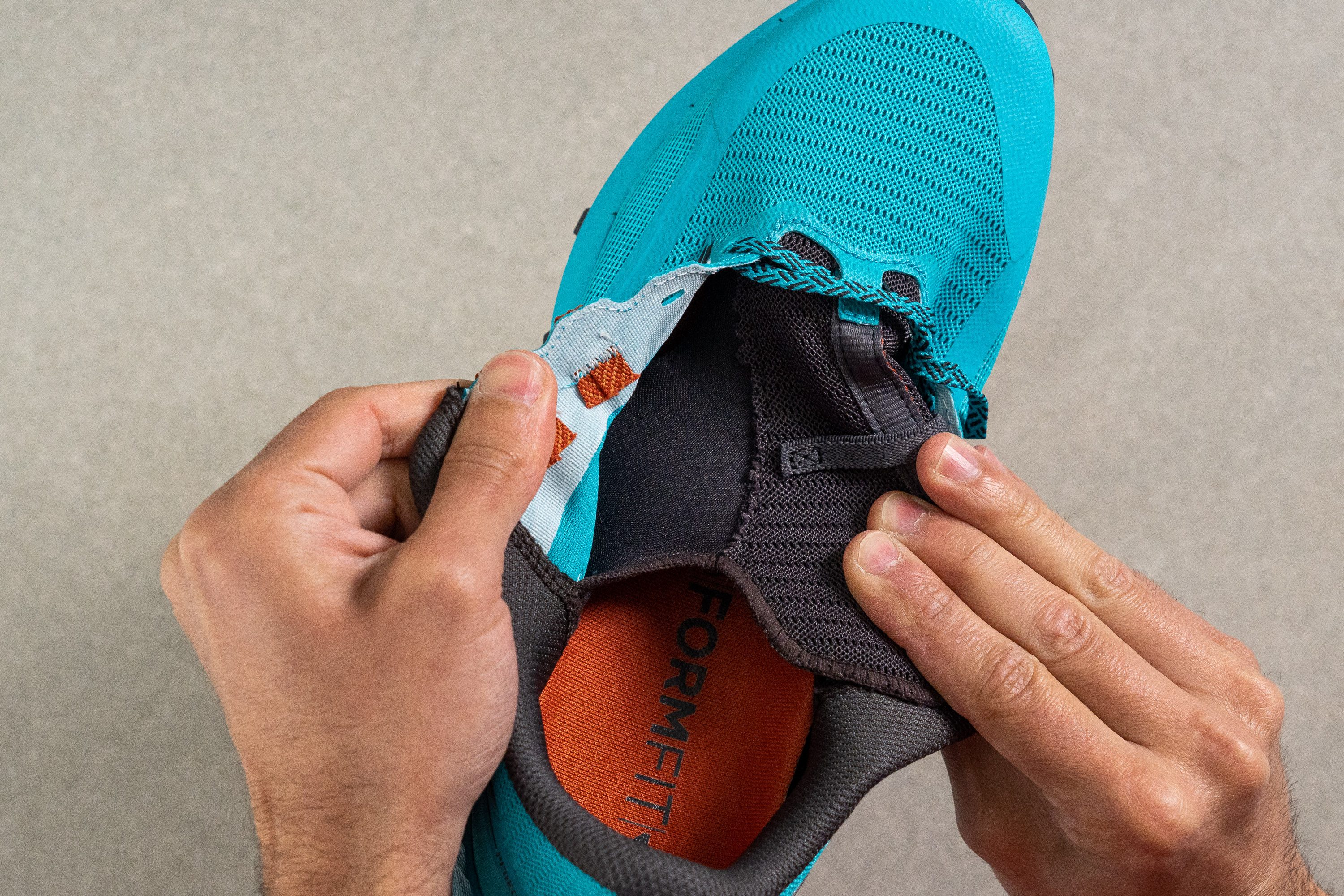
Though the tongue is incredibly comfortable, it's worth mentioning that the ultra-padded sensation of past Peregrines is not present here.
In contrast to the Saucony Peregrine 11's plush 11.0 mm thick tongue, this model features a 3.5 mm tongue, making it remarkably thinner.
